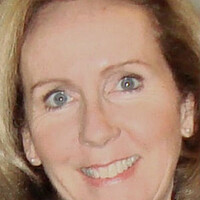On Honesty: Should finders ever be keepers?
Loading...
Trivial but troublesome: It’s summer, on the beach. A woman walks by, sees a pair of sunglasses on the sand, picks them up and examines them, halfheartedly holds them out to a sunbather five feet away with a “these yours?” expression. Getting a “no” and a shrug of the shoulders in return, she – amazingly – pockets the glasses and continues walking. This, with a lifeguard stand – as well as dozens of other people – within a few yards.
Now it’s mid-September: the homeless Glen James finds a backpack at the South End mall in Boston. It contains, among other things, more than $40,000 in cash and travelers checks. He flags down a police officer and hands the bag over, later explaining that he would never have considered keeping any of the money: “God has always very well looked after me,” he explains. The police department honors him, and the public, through an on-line crowd-sourcing site, showers him with cash as well as leads on apartments and jobs. Thus far, the fund has raised a remarkable $150,000-plus for James.
So should a finder ever be a keeper?
Kirk O. Hanson, executive director of the Markkula Center for Applied Ethics at Santa Clara University, calls the two incidents a “wonderful metaphor” for how people think about society. “For some people, life is about getting an advantage over others, and a piece of that involves taking advantage of others’ errors and mistakes.” Another approach, he explained, is to help others when they stumble – the classic image of a Boy Scout helping an old lady across the street.
What goes into the honesty mix when you find something that’s not yours? Well your own circumstances, for sure, says the professor, plus the implications of the loss for the other person. And then there’s the practicality – how much inconvenience are you willing to incur yourself to correct the mistake of another? So the sunglasses easily could have been handed to the lifeguard, for instance. And while a poor and homeless man might have been forgiven had he kept a little something from the backpack, Glen James’ values and his religious beliefs told him otherwise.
“Making ‘deposits’ for the sake of the community – when you do something that makes up for the mistake or stumble of others – is a contribution to the common good,” says the professor, explaining that concern for others is a part of the country’s Judeo-Christian heritage. But such deposits aren’t the no-brainers they once were. “To be honest, the country is experiencing a decline in a commitment to community,” he says, as evidenced by everything from the vitriol in Washington to individualism in sports to an ethos of reveling in the mistakes of others. The entertainment industry in particular seems to showcase approach, he says.
Of course, then a Glen James comes along, and things look up again.
How can parents bring moral clarity to their kids so that they do the right thing when their turn to be the hero comes along? Look to yourself, advises Mr. Hanson. Are you the sunglasses mom, coaching your teenager to get the movie theatre discount by telling the cashier he is under 12? Or are you dad who, belatedly noticing that your little one has pocketed a candy bar at the checkout lane, piles all the kids back into the store, waits again in line, and oversees things while your child apologizes and pays. “You’ve got to set the standards of inconvenience and embarrassment you’re willing to go to,” in teaching your kids honesty, Hanson suggests. Demonstration is everything. “Nothing else can do it as effectively.”
Then again, sometimes you don’t have much of a choice, the find being great and the likelihood of being found out inevitable. Reggie Theus, Texas restaurant manager and would-be benefactor to taxpayers, discovered this just last week, after he decided to do his countrymen a favor and use the $4 trillion credited to his bank account in error to pay off the national debt. Surprise – the bank discovered its mistake… um, darn.








